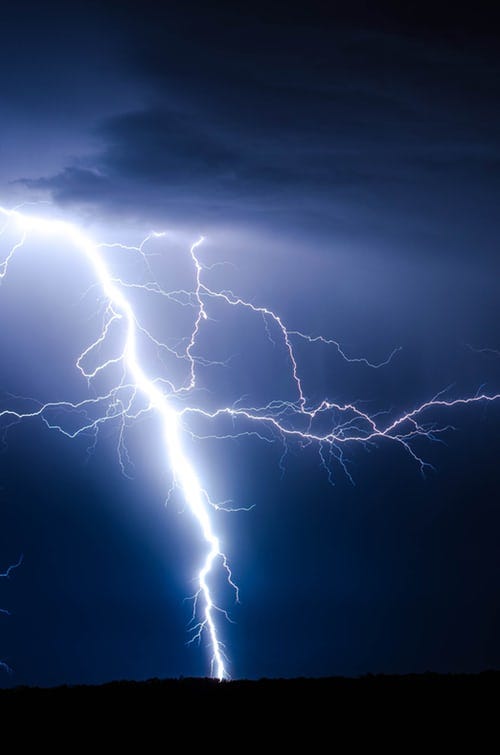Satan’s Fall

After his resurrection, Jesus gathered his disciples on a mountain and told them that all authority in heaven and on earth had been given to him. (Matt 28.18) Jesus was given rule over the nations.
It wasn’t always this way. Certainly, God is and has always been sovereign overall, but that is not the authority that Jesus is talking about. He is talking about the authority of a man to rule over creation. A man has never had this authority. To have man to rule and shape the culture of creation into the image of heaven was always God’s intention. God himself stated this intention to the man and woman at their creation (Gen 1.28). Heaven, God’s throne, would be God’s place of dominion, but he gave the earth to the sons of Adam (Ps 115.16). However, because of sin, man yielded his authority and future exaltation to greater authority to another being.
Here is the story of how the man, Jesus, became king.
The freshly created man was immature and not ready to rule the entire created order. He would need to grow up into that. For this reason, God created him for a little while lower than the angels (cf. Ps 8; Heb 1–2). Angels ruled what man was intended to rule. As with Israel later on, an angel would lead and tutor man from his infancy to grow up into a full man so that he could rule, replacing the angels (cf. e.g., Gal 3.19-27; also Heb 1).
The first angel to have this responsibility was Lucifer. He didn’t like the prospect of losing his authority, so he led man astray. Instead of submitting to God’s word and killing the serpent, man yielded to his destructive tutelage. In doing so, he yielded his authority to rule the creation the way God intended for him to rule. Angels, good and bad, would remain in place. This is seen immediately as angelic figures take charge of guarding the garden (Gen 3.24), a responsibility originally given to the man (Gen 2.15).
But the damage was universal. Luciferian forces, the angels that joined him in his coup, have man’s place in God’s counsel and rule the nations (cf. e.g., Job 1). He stands as a Satan, an accuser, who seeks to have us destroyed (cf. Zech 3; Rev 12). Entire nations are ruled and deceived by him. The “prince of Persia” with whom Michael fights in Daniel 10 is one of those Satanic overlords.
The sin of man set up, not only war in the world, but a war for the world. Who will govern the creation? Whose kingdom will shape the way men live? Will it be Satan and his seed, or will God raise up a man, a faithful Adam, to rule as he intended?
Jesus answers that question throughout his ministry, but we see it plainly when he commissions and sends the seventy in Luke 10. There he gives them his authority. They go on his mission and return rejoicing because even the demons are subject to them in Jesus’ name. Jesus tells them that while they were on their mission, he saw Satan falling from heaven like lightning. Satan is losing his place in heaven and over the nations because the faithful Adam, the man, Christ Jesus has arrived. He is maturing, growing in wisdom, stature, and in favor with God and man (Lk 2.52). He is being transfigured from glory to glory (Lk 9.1ff). The Father is giving him more and more authority, and he is sharing that authority with those he commissions. Jesus appoints the seventy to proclaim to the nations of the world that the time of Satan’s dominion over the world is coming to an end. He is being cast out, and the faithful man will ascend and assume all authority over all of creation. He will reign until all of his enemies are made his footstool (Ps 110).
The nations belong to Jesus. They are his inheritance, and he is their king (Ps 2). He is the man that God always intended to rule the creation.
Because the nations belong to him and he now has authority over them, he commissions his church to “disciple the nations” (Matt 28.19). We are to proclaim to them the lordship of Jesus over the nations, bring them into the kingdom through baptism, and then teach them to live in the culture of the kingdom of God. Because the nations belong to Jesus and Satan has been cast down from his position of rule, the church is assured that our mission will be successful. The nations are his nations. He will have them. They will reflect heaven’s culture.
The post Satan’s Fall appeared first on Kuyperian Commentary.

